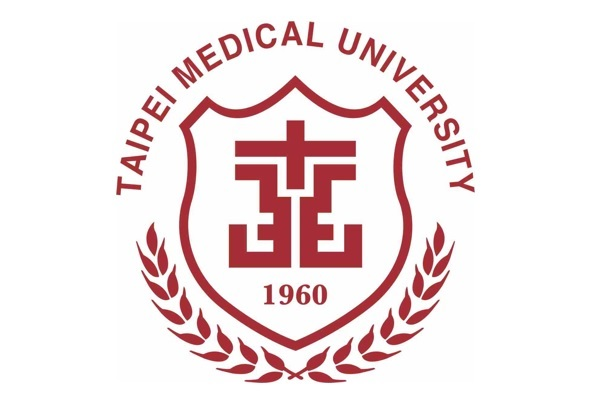Brain Tumors and Brain Trauma
Research Field
Positions
- Director (2024.08-present), The Research Center of Neuroscience, Taipei Medical University
- Vice Director (2023.09-2024.07), The Neuroscience Research Center, Taipei Medical University
- Professor (2022.08-present), International Master Program in Medical Neuroscience, Taipei Medical University
- Vice Dean (2021.04-present), College of Medical Science and Technology, Taipei Medical University
- Professor (2020.08-present), The Ph.D. Program in Medical Neuroscience, Taipei Medical University
- Associate Professor (2017-2020), The Ph.D. Program for Neural Regenerative Medicine, Taipei Medical University
- Assistant Professor (2013-2017), The Ph.D. Program for Neural Regenerative Medicine, Taipei Medical University
- Postdoctoral Fellow (2011-2013), National Institute on Drug Abuse, NIH, U.S.A.
- Postdoctoral Fellow (2010-2011), National Cheng-Kung University, Tainan, Taiwan
Research interests
- Drug Resistance in Glioblastoma
- Traumatic Brain Injury
- Histone Deacetylases
- Oxidative Stress
- Transcriptomics
Increasing evidence suggests a link between dysregulation of histone deacetylases (HDACs) activity and many neoplastic/neurodegenerative diseases, as it regulates acetylation of multiple proteins and affects cellular functions, including cell growth, apoptosis, moving, etc. I have been focusing on HDAC research for thirteen years, including postdoctoral research at National Cheng Kung University (2010-2011), postdoctoral research at National Institute on Drug Abuse (2011-2013), and teaching at Taipei Medical University (2013-present). Interestingly, our lab recently discovered that HDACs have completely different functions in promoting cell survival like yin and yang regulation in different cells (Brain tumor cells and nerve cells), and these findings are supported by the following projects.
- To study the role of specificity protein 1 (Sp1) in cancer drug resistance (2016/08/01~2019/10/31), 105-2320-B-038-063 (1/3); 106-2320-B-038-002 (2/3); 107-2320-B-038-002 (3/3)
- Roles of HDAC6-mediated Sp1 deacetylation in the evolution of acquired temozolomide resistance in glioblastoma (2017/08/01~2019/07/31), 106-2320-B-038-028
- Investigating nerve regeneration following traumatic brain injury (2020/02/01~2025/01/31), 109-2636-B-038-002 (1/5), 110-2636-B-038-004 (2/5), 111-2636-B-038-006 (3/5), 112-2636-B-038-006 (4/5), 113-2636-B-038 001 (5/5)
Investigating nerve regeneration and inflammatory modulation following traumatic brain injury.
Investigating the glioblastoma microenvironment and developing novel therapeutic strategies.
2023 Academic Research Award "Single Research Project Funding Award", Taipei Medical University, Taiwan
2022 Excellent Paper Award, Taipei Municipal Wanfang Hospital - Taipei Medical University, Taiwan
2021 Excellent Paper Award, Taipei Municipal Wanfang Hospital - Taipei Medical University, Taiwan
2020 International Top Journal Paper Award, Taipei Medical University, Taiwan
2020 Excellent Teaching Teacher Award, Taipei Medical University, Taiwan
2017 Outstanding Mentor Award, Taipei Medical University, Taiwan
2017 Young Scholar Research Award, Taipei Medical University, Taiwan
2013 Fellows Award for Research Excellence 2013 winner, National Institutes of Health, United States
2010 Excellent Research Award, College of Medicine, National Cheng Kung University, Taiwan
2009 Dr. Chien-Tien Hsu’ Award for Outstanding Dissertation, the 17th International Symposium on Recent Advances in Cellular and Molecular Biology, Taiwan
2008 Excellent Research Award, College of Medicine, National Cheng Kung University, Taiwan
2010 Ph.D. (Molecular Biology), National Cheng-Kung University, Taiwan
2004 M.S. (Biomedical Sciences), Chang-Gung University, Taiwan
2002 B.S. (Biology), Kaohsiung Medical University, Taiwan
2 Vacancies
Job Description
Based on the above insights, we aim to develop targeted small molecule therapeutics to:
- Inhibit DNA repair mechanisms
- Suppress epigenetic regulation
- Disrupt cancer stemness pathways and tumor microenvironment support system
Preferred Intern Education Level
Bachelor or above degree
Skill sets or Qualities
- Molecular biology skills
- Biomedical Information Analysis
